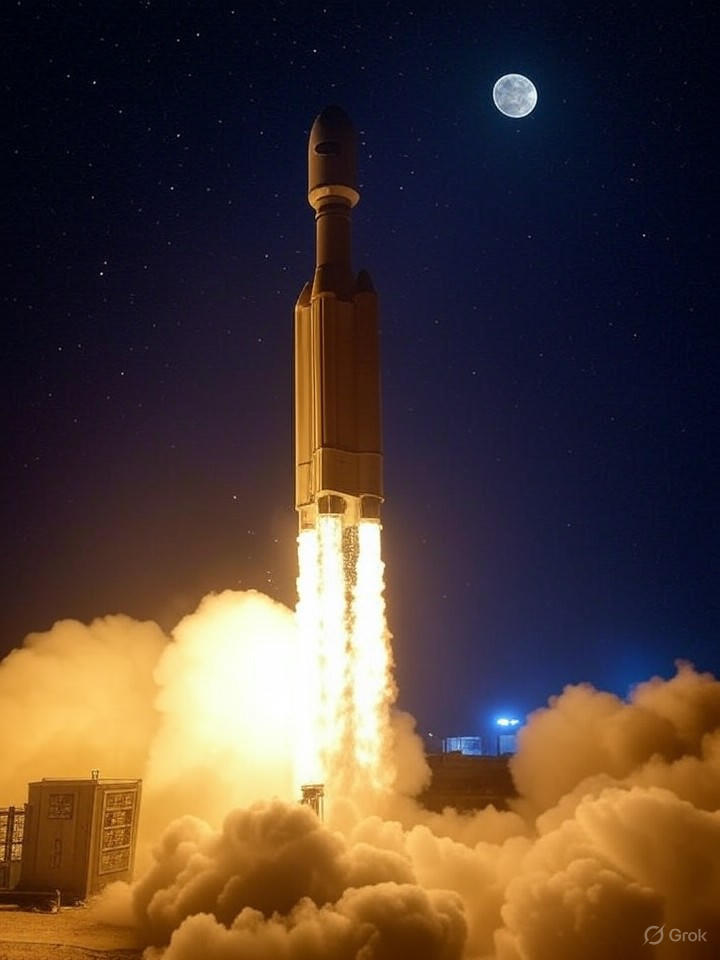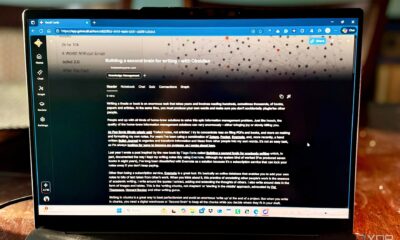Science
AI Transforms Space Exploration: Innovations and Challenges Ahead

In a significant development for the space industry, artificial intelligence (AI) is rapidly transforming operations, enhancing efficiencies and enabling groundbreaking innovations. At a recent summit in Seattle, industry leaders, including executives from major companies such as Blue Origin and SpaceX, emphasized how AI is revolutionizing processes from satellite management to deep-space exploration.
The summit showcased the integration of machine learning algorithms that optimize rocket trajectories in real time, which can reduce fuel consumption by as much as 15% while minimizing mission risks. This technological shift represents a fundamental change in how space missions are conducted, rather than merely an incremental improvement. AI-driven predictive analytics are now being employed to forecast satellite failures, utilizing extensive datasets from orbital sensors. Insights presented at the summit indicated that these advancements could significantly extend the lifespan of satellite constellations like Starlink, potentially saving billions in replacement costs.
AI Enhances Autonomous Systems and Data Processing
As missions venture further from Earth, the need for autonomous spacecraft is becoming increasingly critical. AI plays a pivotal role in managing complex decision-making processes independently of constant human oversight. Additionally, AI is transforming data processing capabilities in space. NASA’s ongoing projects, detailed on their official website, utilize neural networks to analyze terabytes of cosmic data, allowing for the identification of patterns that human analysts might overlook. This capability is vital for missions such as the James Webb Space Telescope, where AI algorithms enhance image clarity and improve the detection of exoplanets.
The private sector has emerged as a leader in these advancements. A report from Lockheed Martin highlights the integration of AI into advanced communications systems, facilitating seamless coordination between ground stations and lunar landers. This is particularly relevant for human exploration initiatives, where AI could autonomously manage life-support systems during extended lunar missions.
Addressing Challenges and Future Frontiers
While AI presents remarkable opportunities for innovation, it also introduces challenges, including data security and algorithmic bias. There is a growing demand for comprehensive regulatory frameworks to ensure the safe deployment of these technologies. Looking ahead, the convergence of AI and quantum computing is anticipated to unlock new possibilities. A technology trends outlook from McKinsey for 2025 predicts that hybrid AI-quantum systems will enable high-accuracy simulations of asteroid mining scenarios. This could revolutionize resource extraction from celestial bodies, offering sustainable alternatives that may disrupt traditional mining industries on Earth.
Innovations are also emerging at the intersection of AI and robotics. The StartUs Insights guide on top space tech trends has highlighted startups developing AI-powered drones aimed at addressing the growing issue of orbital debris. This problem poses a significant threat to active satellites and must be managed effectively.
Investment in AI-driven space ventures is surging, with analysts projecting exponential growth in the sector. Strategic partnerships will be crucial in navigating geopolitical tensions and supply chain vulnerabilities. The European Space Agency is prioritizing AI, promoting global collaboration through initiatives aimed at standardizing AI protocols for international missions. In the United States, discussions around AI’s role in national security are intensifying, particularly regarding countering adversarial satellite interference.
As the year 2025 approaches, the space industry’s embrace of AI signals a transformative shift toward intelligent, adaptive systems. The Seattle summit underscored that for this potential to be fully realized, it is essential to balance innovation with oversight. This dynamic fusion of technology and exploration holds the promise of redefining humanity’s reach into the cosmos, paving the way for both economic growth and scientific breakthroughs.
-

 Technology5 months ago
Technology5 months agoDiscover the Top 10 Calorie Counting Apps of 2025
-

 Health3 months ago
Health3 months agoBella Hadid Shares Health Update After Treatment for Lyme Disease
-

 Health3 months ago
Health3 months agoErin Bates Shares Recovery Update Following Sepsis Complications
-

 Technology4 months ago
Technology4 months agoDiscover How to Reverse Image Search Using ChatGPT Effortlessly
-

 Technology1 month ago
Technology1 month agoDiscover 2025’s Top GPUs for Exceptional 4K Gaming Performance
-

 Technology3 months ago
Technology3 months agoElectric Moto Influencer Surronster Arrested in Tijuana
-

 Technology5 months ago
Technology5 months agoMeta Initiates $60B AI Data Center Expansion, Starting in Ohio
-

 Technology5 months ago
Technology5 months agoRecovering a Suspended TikTok Account: A Step-by-Step Guide
-

 Health4 months ago
Health4 months agoTested: Rab Firewall Mountain Jacket Survives Harsh Conditions
-

 Lifestyle5 months ago
Lifestyle5 months agoBelton Family Reunites After Daughter Survives Hill Country Floods
-

 Health3 months ago
Health3 months agoAnalysts Project Stronger Growth for Apple’s iPhone 17 Lineup
-

 Technology4 months ago
Technology4 months agoHarmonic Launches AI Chatbot App to Transform Mathematical Reasoning





















